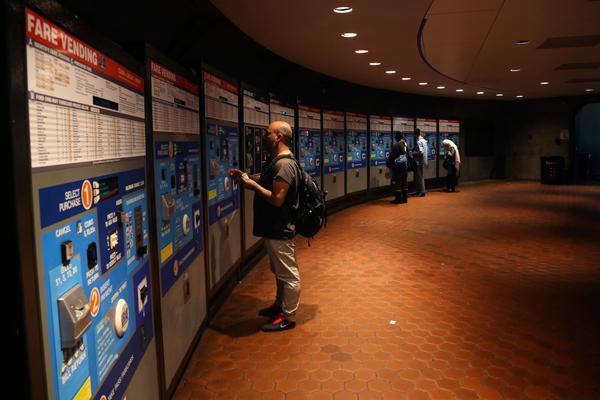Updated: Sept. 12, 2016 at 10:02 a.m.
A new fund offers transportation grants to students traveling to work at unpaid internships.
Students who use public transportation or other modes of transportation to travel to their internships can receive up to $300 per semester through the new grant program. Officials who started the fund say the grants should eliminate an unavoidable daily cost for students that is often overlooked.
Rachel Brown, the assistant provost for University Career Services, said the funds will be allocated to students each semester on a rolling and first-come-first-served basis. All qualified students can apply for the grants until the funding for the semester is depleted.
The number of students who have applied for the funds this semester was greater than the amount allocated, so applications are now closed, Brown said. The application dates for spring internships has not yet been set, according to the Career Services website.
All funding for the grants come from donations, Brown added.
“Based on the strong student response to our initial launch, we have a strong case to share with current and potential donors about student demand and interest in this fund,” Brown said.
Since the transportation grants are a lower dollar value than the traditional unpaid internship grants, career services staff see the transportation fund as an inventive way to help fund students’ internships, Brown said. The traditional grants, which opened in 2013, are reimbursements of up to $3,000 per semester for to pursue unpaid internships.
Students can receive transportation grants only once during their time at GW. Students cannot receive the funds for transportation concurrently with other University-provided grants, like the unpaid internship funds or the career development grants, Brown said.
The grant is only applicable to “necessarily unpaid” internships, meaning internships at organizations that genuinely lack the resources to pay their interns, like non-profit, governmental or educational organizations, according to the fund’s website. To apply for the funds, students must submit an offer letter from their internships with the organization’s location and an indication that the position is necessarily unpaid.
Student Association President Erika Feinman said the fund could encourage students to intern in locations throughout D.C., not just near campus.
“Metro costs really add up,” Feinman said. “At the end of the day, it might be anywhere from $3 to $6 per day to Metro back and forth, so it really is a great fund and I think it will really help students.”
GW has focused on adding ways to ensure students can complete internships: In 2015, officials unveiled a program that offered a discounted cost for earning academic credit for an internship, a requirement of many unpaid internships. And donations for funding grants for unpaid internships hit $200,000 for the year this summer.
Dan Garcia, the vice president of enrollment management at West Texas A&M University, said student travel to internships is not typical at most universities and can go unrecognized in financial aid award calculations.
When costs for completing internships are not considered, students face greater burdens when trying to gain valuable experiences outside of the classroom, Garcia said.
“The student internship transportation fund is a fantastic initiative that recognizes this,” Garcia said.
This post was updated to reflect the following correction:
The Hatchet incorrectly reported that students who already receive financial aid are the only students eligible for internship grants. Any students can apply for the grants. We regret this error.








